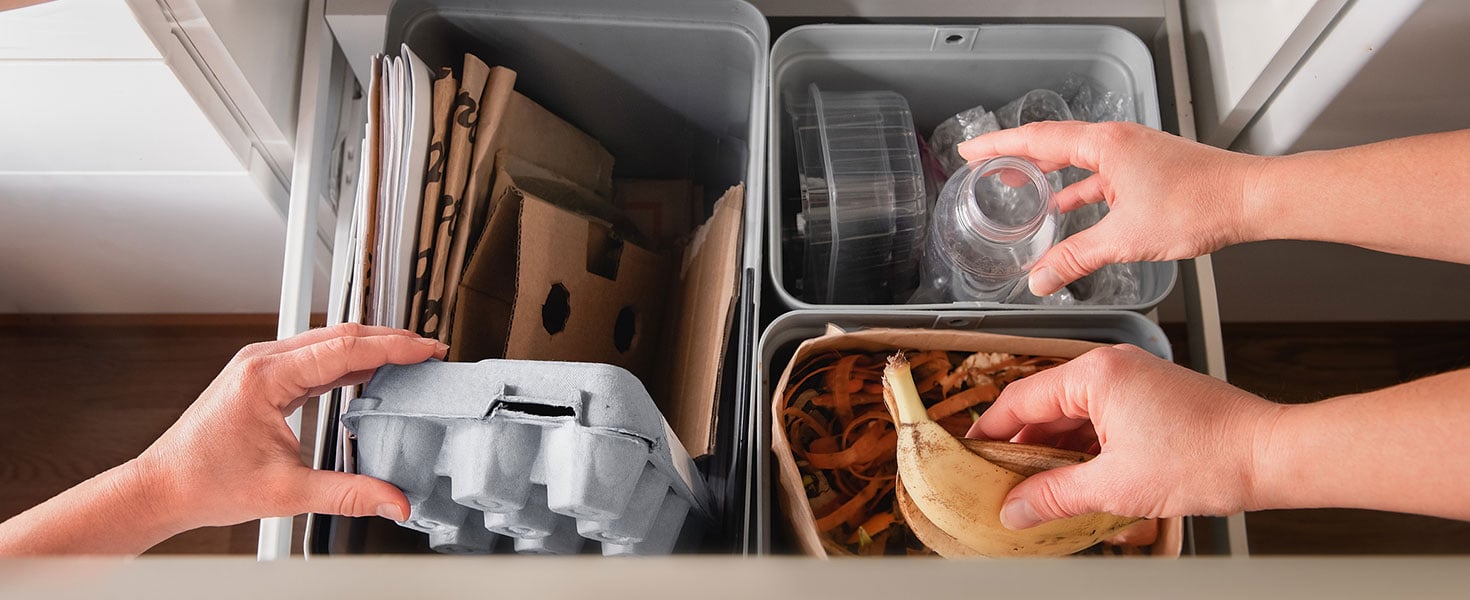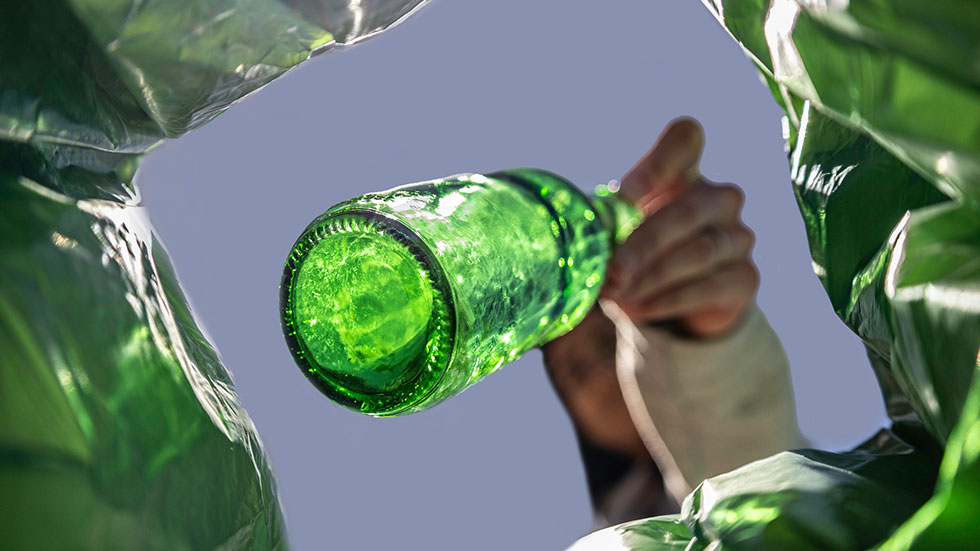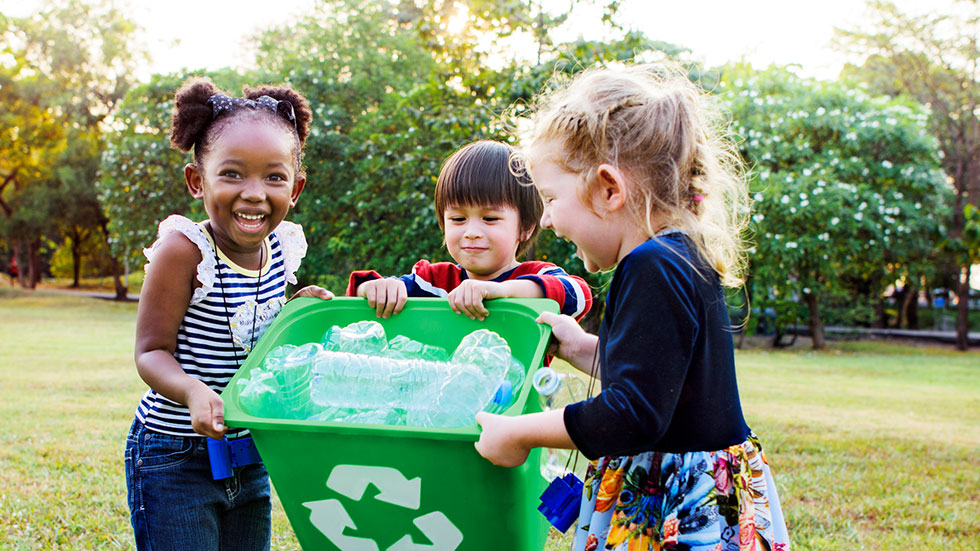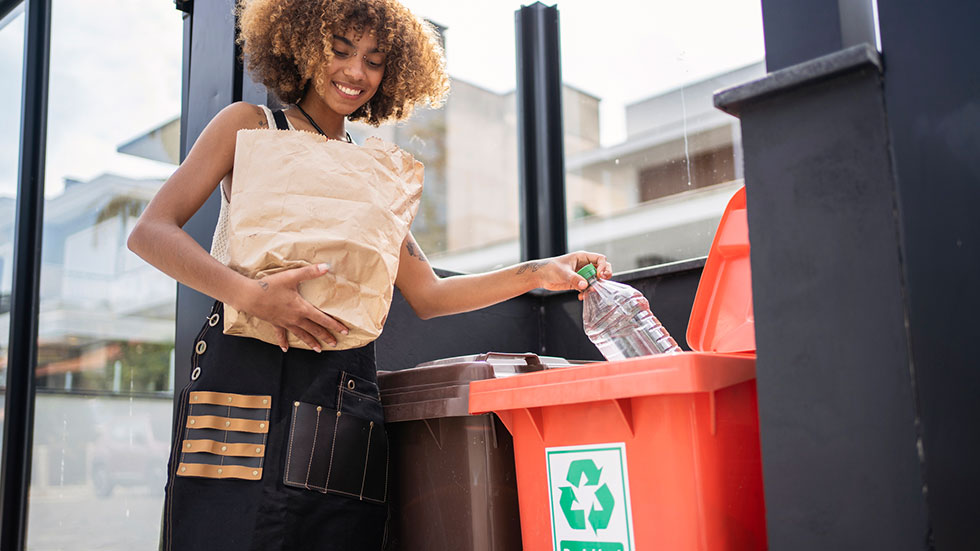Are You Recycling The Right Way?
Know which items can be recycled and the materials that require special handling


The recycling rate in the U.S. has increased from less than 7% in 1960 to more than 30% today. Unfortunately, a recent report from Greenpeace on the state of plastic recycling in the U.S. indicates that the vast majority of plastic that people use and recycle actually goes straight to the landfill.
In fact, it reports that the amount of plastic actually recycled is only around 5%, and that number is expected to continue to decline as more plastic is created.
Many of us want to do a good job recycling but don’t realize there is a right and wrong way to do it. Learn more about how to recycle correctly, including materials that can and can’t be recycled and what to do with your products.

WHAT CAN BE RECYCLED?
Most community or office recycling programs accept these items, but check with your local program for specifics on what they accept. In general, you’ll want to make sure all products are clean, dry, and empty.
Paper/Cardboard
Paper makes up about 23% of trash generated each year, but it’s also one of the most commonly recycled products. Paper materials that can be recycled include:
- Newspapers
- Magazines
- Pizza boxes (be sure to remove any food scraps and flatten the boxes)
- Mail (including envelopes and envelopes with plastic windows)
- Cardboard containers and boxes (make sure to flatten any boxes before placing them in the bin)
- Books (if a hardback, remove the cover first)
Plastics
While millions of tons of plastics are generated in the U.S., a very small percentage is recycled. Plastic products that can be recycled include:
- Plastic bottles and caps (compress plastic bottles and leave the lid on)
- Some plastic containers (though it depends on your local program)
Glass
More than 30% of glass can be recycled, which is beneficial because making new glass from recycled glass is usually cheaper than using raw materials. Glass, especially glass food and beverage containers, can be recycled over and over. Just be sure the glass isn’t broken and you remove any metal tops or caps.
Aluminum
Both aluminum cans and foil can be recycled. In most cases, cans should not be crushed before they are recycled as they are harder to detect when being sorted at recycling facilities.

WHAT CAN’T BE RECYCLED?
There are two items that are commonly recycled, but they cannot be placed in a recycle bin:
- Batteries: Lead-acid batteries are actually one of the most recycled products. However, even though batteries are recyclable, most batteries should not go in household garbage or recycling bins. Take these to specialty drop-off locations or collection points for household hazardous waste.
- Electronics: Electronics also cannot be placed in recycle bins, but can be dropped off at specific collection sites to be recycled. Prior to recycling, be sure to delete all of your personal information.
Other items that cannot be placed in bins for recycling include:
- Paper gift wrap with a shiny or laminated coating
- Shredded paper
- Plastic bags, wraps, and films
- Styrofoam
- Plastic utensils
- Compostable plastic
- Yard waste, such as leaves or grass clippings
- Household hazardous waste, such as pesticides, insecticides, paints, and more
- Light bulbs
- Not-empty aerosol cans
- Food
- Old clothes and shoes

ALTERNATIVES TO RECYCLING
It’s important to note that while many products we use can’t be recycled, there are other ways you can reduce their impact on the environment. Examples include:
- Many grocery and retail stores offer collection bins for recycling plastic bags.
- You can donate food, clothes, shoes, and similar items to a local charity or donation site.
- If your item is compostable (such as compostable plastic or yard waste), consider starting a compost pile.
WHERE TO TAKE RECYCLING
To find a recycling location near you, start with a search on sites like Earth911 or Recycle Nation. You can also check with your city or county waste management office to find out about specialty recycling programs, curbside services, and recycling drop-off sites.
